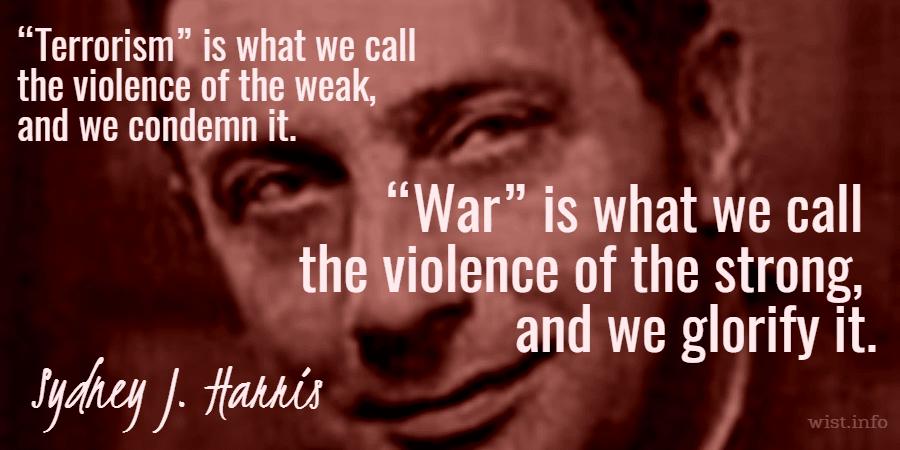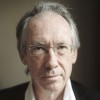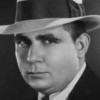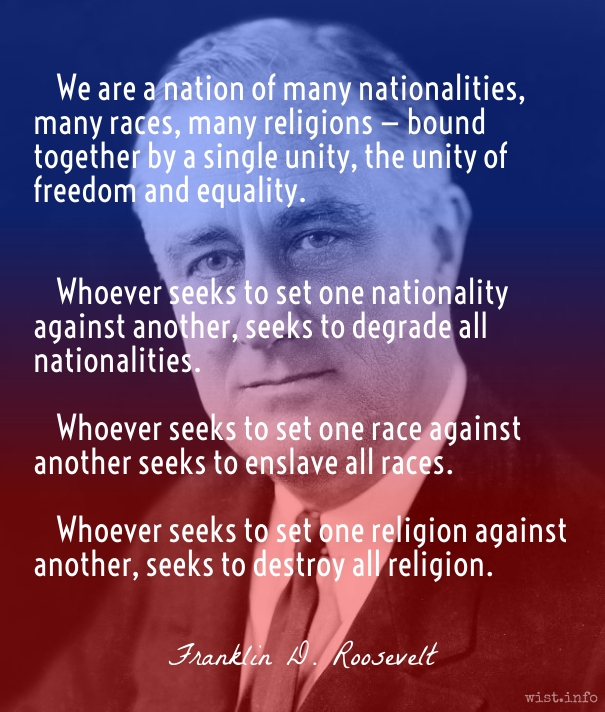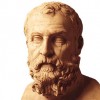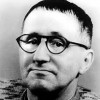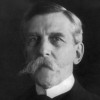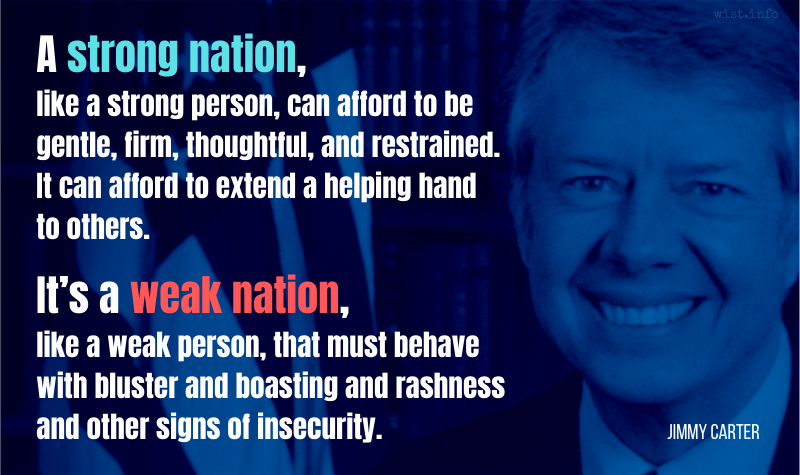Standing up to your government can mean standing up for your country.
Bill Moyers (b. 1934) American journalist and public commentator
Closing comments, NOW (PBS) (2003-02-28)
(Source)
Regarding patriotism and opposition to the impending war in Iraq. Moyers quoted the comments in a speech to National Conference for Media Reform (St Louis) (2005-05-15); the phrase is often cited to that occasion.
Quotations about:
nation
Note not all quotations have been tagged, so Search may find additional quotes on this topic.
No solitary miscreant, scarcely any solitary maniac, would venture on such actions and imaginations, as large communities of sane men have, in such circumstances, entertained as sound wisdom.
Thomas Carlyle (1795-1881) Scottish essayist and historian
“Signs of the Times,” Edinburgh Review No. 98, Art. 7 (1829-06)
(Source)
Cowardice or Bravery is never racial. You find both in every Country. No country has a monopoly on Bravery; great deeds of heroism is liable to break out in the most unexpected places.
Will Rogers (1879-1935) American humorist
“More Letters of a Self-Made Diplomat,” Saturday Evening Post (1932-03-12)
(Source)
People feel shameful to be poor and underprivileged in a well-run country. You should feel shameful if you are rich and aristocratic in a decadent and corrupt country.
[邦有道、貧且賤焉、恥也、邦無道、富且貴焉、恥也。]
Confucius (c. 551- c. 479 BC) Chinese philosopher, sage, politician [孔夫子 (Kǒng Fūzǐ, K'ung Fu-tzu, K'ung Fu Tse), 孔子 (Kǒngzǐ, Chungni), 孔丘 (Kǒng Qiū, K'ung Ch'iu)]
The Analects [論語, 论语, Lúnyǔ], Book 8, verse 13, sec. 3 (8.13.3) (6th C. BC – AD 3rd C.) [tr. Li (2020)]
(Source)
Brooks (below) says that this analect was added into Book 8 at the time of Book 14 being produced.
(Source (Chinese)). Alternate translations:
When a country is well-governed, poverty and a mean condition are things to be ashamed of. When a country is ill-governed, riches and honour are things to be ashamed of.
[tr. Legge (1861)]
Under a good government it will be a disgrace to him if he remain in poverty and low estate; under a bad one it would be equally disgraceful to him to hold riches and honours.
[tr. Jennings (1895)]
When there is justice and order in the government of his own country, he should be ashamed to be poor and without honour; but when there is no justice in the government of his own country he should be ashamed to be rich and honoured.
[tr. Ku Hung-Ming (1898)]
When law and order prevail in his State, he is ashamed to be needy and of no account. When law and order fail, he is ashamed to be in affluence and honour.
[tr. Soothill (1910)]
When a state is functioning, poverty and meanness are shameful; when a state is in chaos (ill governed) riches and honours are shameful. [Let us say: under a corrupt government.]
[tr. Pound (1933)]
When the Way prevails in your own land, count it a disgrace to be needy and obscure; when the Way does not prevail in your land, then count it a disgrace to be rich and honoured.
[tr. Waley (1938)]
If a state is following The Right Way, it is a disgrace to be in poverty and a low estate therein; if not, it is a disgrace to be rich and honored therein.
[tr. Ware (1950)]
It is a shameful matter to be poor and humble when the Way prevails in the state. Equally, it is a shameful matter to be rich and noble when the Way falls into disuse in the state.
[tr. Lau (1979)]
When the Way prevails in your own state, to be made poor and obscure by it is a disgrace; but when teh Way does not prevail in your own state, to be made rich and honourable by it is a disgrace.
[tr. Dawson (1993)]
In a country where the Way prevails, it is shameful to remain poor and obscure; in a country which has lost the Way, it is shameful to become rich and honored.
[tr. Leys (1997)]
When the state possesses the Way and you are poor and lowly, it is a shame; when the state loses the Way and you are rich and noble, it is also a shame.
[tr. Huang (1997)]
If the country is on the right way, it is the shame to be poor and low; If the country is not on the right way, it is the shame to be rich and honor.
[tr. Cai/Yu (1998), #201]
It is a disgrace to remain poor and without rank when the way prevails in the state; it is a disgrace to be wealthy and of noble rank when it does not.
[tr. Ames/Rosemont (1998)]
When the state has the Way, to be poor and humble in it is shameful; when the state has not the Way, to be wealthy and honored in it is shameful.
[tr. Brooks/Brooks (1998)]
When the Way rules in your country, there's shame in poverty and obscurity; when the Way's lost in your country, there's shame in wealth and renown.
[tr. Hinton (1998)]
In a state that has the Way, to be poor and of low status is a cause for shame; in a state that is without the Way, to be wealthy and honored is equally a cause for shame.
[tr. Slingerland (2003)]
When the state follows the Way, being poor and lowly is a cause for shame. When the state is without the Way, being rich and eminent is a cause for shame.
[tr. Watson (2007)]
When the moral way prevails in a state, being poor and lowly is a cause for shame. When the moral way does not prevail in the world, having wealth and position is a cause for shame.
[tr. Chin (2014)]
How can a nation be called great if its bread tastes like Kleenex?
Julia Child (1912-2004) American chef and writer
(Misattributed)
(Source)
Not found in Child's works, it appears to have been coined by Joan Barthel in an article about Child: "How to Avoid TV Dinners While Watching TV," New York Times Magazine (1966-08-07):
"The French Chef" [...] educational TV's answer to underground movies and pop-op cults -- the program that can be campier than "Batman," farther-out than "Lost in Space" and more penetrating than "Meet the Press" as it probes the question: Can a Society be Great if its bread tastes like Kleenex?"
The article is quoted in Noël Riley Fitch, Appetite for Life: The Biography of Julia Child (1997).
No society, certainly not a large and heterogeneous one, can fail in time to explode if it is deprived of the arts of compromise, if it knows no way of muddling through. No good society can be unprincipled; and no viable society can be principle-ridden.
Alexander M. Bickel (1924-1974) Romanian-American law professor, constitutional scholar
The Least Dangerous Branch, ch. 2 (1962)
(Source)
A conservative young man has wound up his life before it was unreeled. We expect old men to be conservative, but when a nation’s young men are conservatives, its funeral bell is already rung.
Henry Ward Beecher (1813-1887) American clergyman and orator
Life Thoughts (1858) [ed. Proctor]
(Source)
This was more succinctly summarized in Proverbs from Plymouth Pulpit, "Political" (1887) [ed. William Drysdale]:
When a nation’s young men are conservatives, its funeral bell is already rung.
A society is most vigorous, and appealing, when both partisan and critic are legitimate voices in the permanent dialogue that is the testing of ideas and experience. One can be a critic of one’s country without being an enemy of its promise.
Daniel Bell (1919-2011) American sociologist, writer, editor, academic
The End of Ideology, Introduction (1961 ed.)
(Source)
I believe in human dignity as the source of national purpose, in human liberty as the source of national action, and the human heart as the source of national compassion, and in the human mind as the source of our invention and our ideas. It is, I believe, this faith in our fellow citizens as individuals and as people that lies at the heart of the liberal faith, for liberalism is not so much a party creed or a set of fixed platform promises as it is an attitude of mind and heart, a faith in man’s ability through the experiences of his reason and judgment to increase for himself and his fellow men the amount of justice and freedom and brotherhood which all human life deserves.
John F. Kennedy (1917-1963) US President (1961-63)
Speech, Liberal Party Nomination, New York (14 Sep 1960)
(Source)
A nation can survive its fools, and even the ambitious. But it cannot survive treason from within. For the traitor appears not a traitor — he speaks in the accents familiar to his victims, and he appeals to the baseness that lies deep in the hearts of all men. He rots the soul of a nation — he works secretly and unknown in the night to undermine the pillars of the city — he infects the body politic so that it can no longer resist. A murderer is less to be feared. The traitor is the carrier of the plague. You have unbarred the gates of Rome to him.
The world is my country, all mankind are my brethren, and to do good is my religion.
Thomas Paine (1737-1809) American political philosopher and writer
(Attributed)
This is widely attributed to Paine, in respectable sources, and usually (when a source is given) from The Rights of Man (1791) or The Age of Reason (1795). But a search of the text of the latter shows none of the three clauses appear in it. In The Rights of Man, Paine did write, "My country is the world, and my religion is to do good," which is close but not the same (and is sometimes cited with the different word order of the subject quote).
The three clauses appear (with a fourth, "I believe in One God and no more") on the 1923 plaque at the location of Paine's last residence, on Grove St. in Greenwich Village, NY, but with no citation (though one is sometimes applied). But the attribution of this phrase to Paine (including citing it to The Age of Reason) predates the plaque (e.g., 1913). I've not been able to find a reliable citation for this quote.
Agitation is the marshalling of the conscience of a nation to mold its laws.
Robert Peel (1788-1850) British statesman, Prime Minister (1834-35, 1841-46)
(Attributed)
(Source)
Sometimes quoted as "conscience of a people." Widely quoted without source in the late 19th Century (earliest ref. 1881).
The conception of men as united to each other, and of all mankind as united to God, by mutual obligations arising from their relation to a common end, which vaguely conceived and imperfectly realized, had been the keystone holding together the social fabric, ceased to be impressed upon men’s minds, when Church and State withdrew from the centre of social life to its circumference. What remained … was private rights and private interests, the materials of a society rather than a society itself.
Every civilization rests on a set of promises: moral promises about how to behave toward each other, physical promises about how to use our economic system. If the promises are broken too often, the civilization dies, no matter how rich it may be, or how mechanically clever. Hope and faith depend upon promises; if hope and faith go, everything goes.
Individual liberty is individual power, and as the power of a community is a mass compounded of individual powers, the nation which enjoys the most freedom must necessarily be in proportion to its numbers the most powerful nation.
What the tender poetic youth dreams, and prays, and paints to-day, but shuns the ridicule of saying aloud, shall presently be the resolutions of public bodies, then shall be carried as grievance and bill of rights through conflict and war, and then shall be triumphant law and establishment for a hundred years, until it gives place, in turn, to new prayers and pictures.
Ralph Waldo Emerson (1803-1882) American essayist, lecturer, poet
“Politics,” Essays: Second Series (1844)
(Source)
This quotation is more often given as the paraphrase used by another speaker of the era, the abolitionist Wendell Phillips:
What the tender and poetic youth dreams to-day, and conjures up with inarticulate speech, is to-morrow the vociferated result of public opinion, and the day after is the charter of nations.
Phillips used this phrase, prefixed with, "As Emerson says," and in quotation marks, at least twice. First in his lecture "Harper's Ferry" (1 Nov 1859), Brooklyn. Second, in a different context, in "The Scholar in a Republic" (30 Jun 1881), a famous speech at the centennial of the Phi Beta Kappa society at Harvard University.
Emerson did not use this shorter phrasing, however, in any of his written works, and frequent attributions of it to him are in error.
When a nation forgets her skill in war, when her religion becomes a mockery, when the whole nation becomes a nation of money-grabbers, then the wild tribes, the barbarians drive in. … Who will our invaders be? From whence will they come?
What are the marks of a sick culture? It is a bad sign when the people of a country stop identifying themselves with the country and start identifying with a group. A racial group. Or a religion. Or a language. Anything, as long as it isn’t the whole population. A very bad sign. Particularism. It was once considered a Spanish vice but any country can fall sick with it.
We are a nation of many nationalities, many races, many religions — bound together by a single unity, the unity of freedom and equality. Whoever seeks to set one nationality against another, seeks to degrade all nationalities. Whoever seeks to set one race against another seeks to enslave all races. Whoever seeks to set one religion against another, seeks to destroy all religion.
I am stressing that it is the force of ideas rather than the impact of material things that made us a great nation. It is my conviction, too, that only the power of ideas, of enduring values, can keep us a great nation. For, where there is no vision the people perish.
Be assured, my young friend, that there is a great deal of ruin in a nation.
Every major industrialized nation has A BEER (you can’t be a Real Country unless you have A BEER and an airline — it helps if you have some kind of a football team, or some nuclear weapons, but at the very least you need A BEER).
Frank Zappa (1940-1993) American singer-songwriter
The Real Frank Zappa Book, ch. 12 “America Drinks & Goes Marching” (1989) [with Peter Occhiogrosso]
(Source)
More discussion of this quotation: You Can’t Be a Real Country Unless You Have a Beer and an Airline – Quote Investigator
At a dinner given by Periander, tyrant of Corinth, to the Seven Wise Men, including Anacharsis, the question was asked, What is the ideal state, or most perfect form of popular government? The answers given by the philosophers were as follows:—
Solon: “That in which an injury done to the least of its citizens is an injury done to all.”
Bias: “Where the law has no superior.”
Thales: “Where the rich are neither too rich, nor the poor too poor.”
Anacharsis: “Where virtue is honored, and vice detested.”
Pittacus: “Where dignities are always conferred on the good, never on the bad.”
Cleobulus: “Where the citizens fear blame more than punishment.”
Chilo: “Where the laws are more regarded, and have more authority, than the orators.”
Goethe has asked, “What government is best? That which teaches us to govern ourselves.” At another time he said, “The best government is that which makes itself superfluous.”
“Good government,” says Confucius, “obtains when those who are near are made happy, and those who are far off are attracted.”
For in a republic, who is “the Country”? Is it the Government which is for the moment in the saddle? Why, the Government is merely a servant — merely a temporary servant; it cannot be its prerogative to determine what is right and what is wrong, and decide who is a patriot and who isn’t. Its function is to obey orders, not originate them. Who, then, is “the country?” Is it the newspaper? Is it the pulpit? Is it the school-superintendent? Why, these are mere parts of the country, not the whole of it; they have not command, they have only their little share in the command. They are but one in the thousand; it is in the thousand that command is lodged; they must determine what is right and what is wrong; they must decide who is a patriot and who isn’t.
Against our traditions we are now entering upon an unjust and trivial war, a war against a helpless people, and for a base object — robbery. At first our citizens spoke out against this thing, by an impulse natural to their training. Today they have turned, and their voice is the other way. What caused the change? Merely a politician’s trick — a high-sounding phrase, a blood-stirring phrase which turned their uncritical heads: Our Country, right or wrong! An empty phrase, a silly phrase. It was shouted by every newspaper, it was thundered from the pulpit, the Superintendent of Public Instruction placarded it in every schoolhouse in the land, the War Department inscribed it upon the flag. And every man who failed to shout it or who was silent, was proclaimed a traitor — none but those others were patriots. To be a patriot, one had to say, and keep on saying, “Our Country, right or wrong,” and urge on the little war. Have you not perceived that that phrase is an insult to the nation?
To a wise man, the whole earth is open; for the native land of a good soul is the whole earth.
[Ἀνδρὶ σοφῶι πᾶσα γῆ βατή· ψυχῆς γὰρ ἀγαθῆς πατρὶς ὁ ξύμπας κόσμος.]
Democritus (c. 460 BC - c. 370 BC) Greek philosopher
Frag. 247 (Diels) [tr. Freeman (1948)]
(Source)
Diels citation: "247. (168 N.)"; collected in Joannes Stobaeus (Stobaios) Anthologium III, 40, 7. Alternate translations:
- "To a wise man the whole earth is accessible; for the home country of a good soul is the whole world." [tr. Barnes (1987)]
- "The whole earth is open to the wise person, for the entire universe is the country of a good soul." [@sentantiq (2019)]
- "The whole world is home to a wise man with an upright spirit." [Source]
- "The wise man belongs to all countries, for the home of a great soul is the whole world."
National character is only another name for the particular form which the littleness, perversity, and baseness of mankind take in every country. If we become disgusted with one, we praise another, until we get disgusted with this too. Every nation mocks at other nations, and all are right.
[Dem Nationalcharakter wird, da er von der Menge redet, nie viel Gutes ehrlicherweise nachzurühmen sein. Vielmehr erscheint nur die menschliche Beschränktheit, Verkehrtheit und Schlechtigkeit in jedem Lande in einer andern Form und diese nennt man den Nationalcharakter. Von einem derselben degoutirt loben wir den andern, bis es uns mit ihm eben so ergangen ist. — Jede Nation spottet über die andere, und alle haben recht.]
Arthur Schopenhauer (1788-1860) German philosopher
Parerga and Paralipomena, Vol. 1, “Aphorisms on the Wisdom of Life [Aphorismen zur Lebensweisheit],” ch. 4 “Position, or a Man’s Place in the Estimation of Others [Von dem, was einer vorstellt]” (1851) [tr. Saunders (1890), 4.2]
(Source)
(Source (German)). Alternate translation:
Since national character speaks of the crowd, not much good will ever be honestly said in its favour. On the contrary, we see in a different form in each country only human meanness, perversity, and depravity, and this is called national character. Having become disgusted with one of them, we praise another until we become just as disgusted with it. Every nation ridicules the rest and all are right.
[tr. Payne (1974), ch. 4 "What a Man Represents"]
I have pledged myself and my colleagues in the cabinet to a continuous encouragement of initiative, responsibility and energy in serving the public interest. Let every public servant know, whether his post is high or low, that a man’s rank and reputation in this Administration will be determined by the size of the job he does, and not by the size of his staff, his office or his budget. Let it be clear that this Administration recognizes the value of dissent and daring — that we greet healthy controversy as the hallmark of healthy change. Let the public service be a proud and lively career. And let every man and woman who works in any area of our national government, in any branch, at any level, be able to say with pride and with honor in future years: “I served the United States Government in that hour of our nation’s need.”
The modern patriotism, the true patriotism, the only rational patriotism is loyalty to the nation all the time, loyalty to the government when it deserves it.
By “nationalism” I mean first of all the habit of assuming that human beings can be classified like insects and that whole blocks of millions or tens of millions of people can be confidently labeled “good” or “bad.” But secondly — and this is much more important — I mean the habit of identifying oneself with a single nation or other unit, placing it beyond good and evil and recognizing no other duty than that of advancing its interests.
George Orwell (1903-1950) English writer [pseud. of Eric Arthur Blair]
“Notes on Nationalism” (May 1945)
(Source)
ANDREA: Unhappy the land that has no heroes! …
GALILEO: No, Unhappy the land that needs heroes.[ANDREA: Unglücklich das Land, das keine Helden hat! …
GALILEO: Nein, Unglücklich das Land, das Helden nötig hat.]
It will, I believe, be everywhere found, that as the clergy are, or are not what they ought to be, so are the rest of the nation.
It is now the moment when by common consent we pause to become conscious of our national life and to rejoice in it, to recall what our country has done for each of us, and to ask ourselves what we can do for our country in return.
Oliver Wendell Holmes, Jr. (1841-1935) American jurist, Supreme Court Justice
“In Our Youth Our Hearts Were Touched With Fire,” Memorial Day address, Keene, New Hampshire (30 May 1884)
(Source)
Patriotism is proud of a country’s virtues and eager to correct its deficiencies; it also acknowledges the legitimate patriotism of other countries, with their own specific virtues. The pride of nationalism, however, trumpets its country’s virtues and denies its deficiencies, while it is contemptuous toward the virtues of other countries. It wants to be, and proclaims itself to be, “the greatest,” but greatness is not required of a country; only goodness is.
Great men hallow a whole people and lift up all who live in their time.
Sydney Smith (1771-1845) English clergyman, essayist, wit
“Ireland,” The Edinburgh Review (1820-11)
(Source)
Review of Whitewlaw's History off the City of Dublin,, Curwein's Observations on the State of Ireland (1818), and Gamble's Views of Society in Ireland.
Speaking of his friend, Henry Grattan.
A strong nation, like a strong person, can afford to be gentle, firm, thoughtful, and restrained. It can afford to extend a helping hand to others. It’s a weak nation, like a weak person, that must behave with bluster and boasting and rashness and other signs of insecurity.
Jimmy Carter (b. 1924) American politician, US President (1977-1981), Nobel laureate [James Earl Carter, Jr.]
“Warm Hearts and Cool Heads,” speech, Liberal Party dinner, New York City (14 Oct 1976)
(Source)
The title of the speech was from a phrase coined by Adlai Stevenson.
HAYWOOD: There are those in our own country, too, who today speak of the protection of country, of survival. A decision must be made, in the life of every nation, at the very moment when the grasp of the enemy is at its throat, when it seems the only way to survive is to use the means of the enemy, to rest survival upon what is expedient. To look the other way. Only the answer to that is: Survival as what?
A state without the means of some change is without the means of its conservation.
Edmund Burke (1729-1797) Anglo-Irish statesman, orator, philosopher
Reflections on the Revolution in France (1790)
(Source)
















